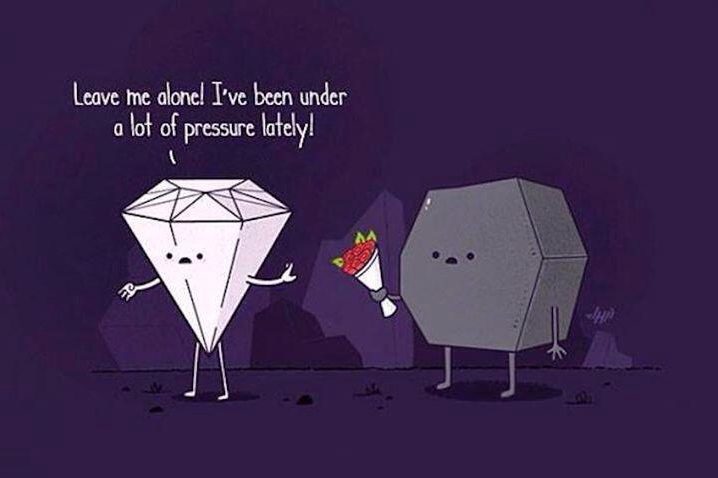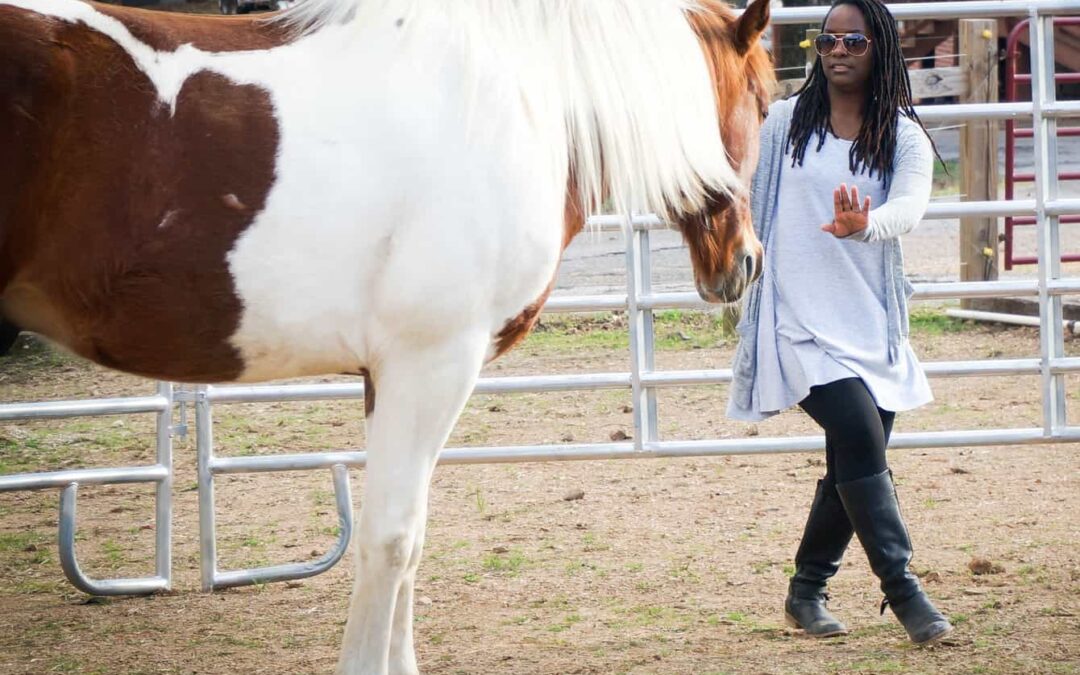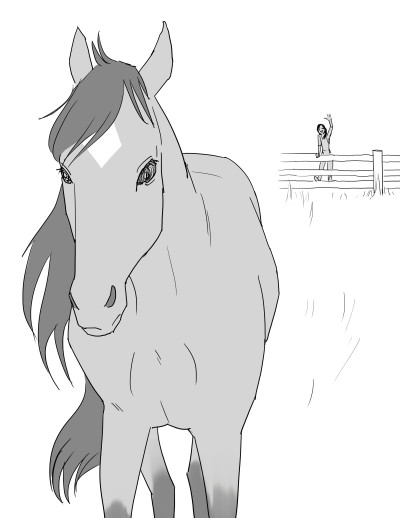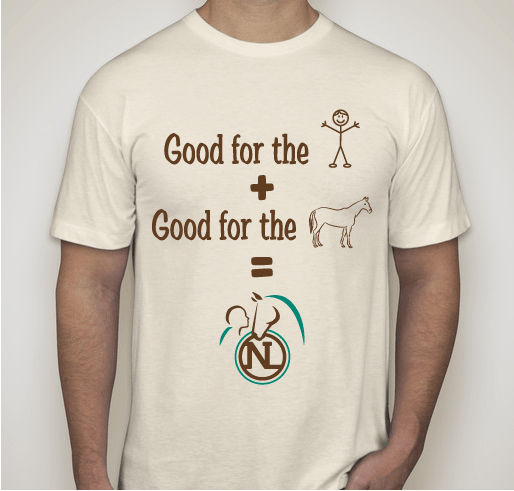
by Kate Naylor | Jun 14, 2016 | Testimonials & Reflections
Is It Always a Bad Thing?
In Natural Lifemanship, we use the word ‘pressure’ a lot. It’s been very carefully chosen, actually, because of its usability in all circumstances. We use it when we talk about horses, families, therapy, work, and everything else. But for many, the idea of pressure connotes something negative – pressure is force, pressure is stress. The dictionary describes it this way. And if you have any experience with typical horse training, you would be right. Typically, horses are forced or stressed into making the choice that humans want. So much pressure is exerted that the horse will do anything for a release. These methods of force have no place in therapy, so it is important for us to really examine the idea of pressure, and whether or not it truly is a negative thing all of the time.
I have heard many times that pressure is an unkind, unhealthy thing that we should never exert on children, animals, our partners – but I believe when people say that what they mean is inappropriate pressure. And to that I emphatically agree – YES! Inappropriate pressure is unkind, unhealthy, and not good for relationships.
But just plain old pressure? That’s simply a fact of life, and of relating.
Let’s look at some examples. When your toddler walks up to you, arms outstretched, is that not pressure? Your toddler is making a request using a small amount of pressure…energy…force. And is that a bad thing? Or is your toddler simply trying to connect? What about when your horses stand at their gate watching for you at breakfast time? Your calendar has a big red circle on Friday because your project is due? Or your dog sits by the back door, waiting patiently to be let out? All of these behaviors exert a very small amount of pressure on us – it is simply communication. When we think about it in terms of our own personal development, we call it eustress. A small amount of tolerable stress that helps us grow. Pressure can be the same, when it is used appropriately.
Now, if completely unwarranted, your toddler screamed and yelled and threw himself on the floor about being picked up; or your horses tore down their gate and galloped into the feed room…now that is some serious pressure, that is inappropriate pressure.
In a perfect world, we wouldn’t have to exert pressure on each other, right? Some folks seem to think so. But, can you have a relationship without pressure? Can you grow without pressure? Physically speaking, no, we can’t. Consider an astronaut – without gravity constantly exerting pressure, brains and bodies atrophy. And emotionally speaking, no, we can’t either. How far would you have gotten in academics had you not felt some pressure from yourself and those who loved you (pressure as expectation)? Would you and your partner ever have met if someone didn’t work up the courage to speak to the other one (pressure of requesting engagement)? Would you and your pet have much of a relationship if you both just went your own way and took care of yourselves all the time – never exerting any requests or offering any engagement? Likely not. We would physically deteriorate, and be relationally alone, without pressure.
Relationships require give and take – giving of time, of attention, of energy while also taking of time, of attention, of energy. We engage in this dance of a relationship through moments of pressure – requests made by one to the other. When it is done appropriately, pressure is not harmful or frightening. It is the stuff healthy growth and relationships are made of.
Kate Naylor is a licensed therapist specializing in TF-EAP in the Austin, Texas area. For more information visit: http://www.Kategosenaylor.com

by Reccia Jobe | Feb 6, 2016 | Basics of Natural Lifemanship
In the spirit of celebrating and practicing do-overs, this blog has been updated and expanded based on all we’ve learned in the last 8 years! You can read the updated version here.
Building new pathways in the brain by intentionally practicing something different
What is a do-over? A do-over is a chance to correct a behavior, thought, or belief that interferes with the types of relationships we want to have. They are chances to practice something different. They are a method to build new pathways in the brain or strengthen pathways that are already there, but not used very often. I like to think of do-overs as physical therapy for the brain.
A few years ago in New Mexico, I decided to break out the snowboard I had tried to learn to ride in my 20’s. I had somewhat mastered skiing and wanted a new challenge on the slopes. On this trip, I was now in my 30’s and hadn’t tried the snowboard in several years.
(more…)

by Rebecca Hubbard | Feb 5, 2016 | Applied Principles
An Excerpt from The Gift
All that exploring made me hungry, so I gathered the tender grass into my mouth. The blades were sweet, and the sun was warm on my back. Maybe my friends would come later in the same trailer that had brought me. The pasture was big enough for all of us, and we would romp and play new games.
Then a high-pitched noise cut across the peaceful pasture. A tall, skinny girl with a black mane was standing on the fence. She was hollering and making such a ruckus I couldn’t enjoy that sweet, tender grass. So I walked down the hill to a quiet spot. But the girl kept yelling in that awful high voice. She made so much noise that I moved even further away. Only after she left could I munch in peace.
(more…)

by Tim Jobe | Jan 27, 2016 | Basics of Natural Lifemanship, Horsemanship
I think quite a few of life’s problems are the result of one sided relationships. As we travel the country working with people and horses, the one sided relationship seems all too prevalent. We see people who do everything they can to meet the needs of their horse but never ask the horse to meet any of their needs. I guess the people are getting some need met at some level but the horse is not having to do anything except be present. They feed it, they groom it, and they worm it, provide it with fresh water, and trim its feet all the while asking it to contribute very little to the relationship. When they do actually ask the horse to do something they are met with resistance or the request is ignored. They then seem disappointed that their loving horse is treating them so rudely. They shouldn’t be surprised because that is the way they set up the relationship to begin with. They are often afraid to ask anything of the horse because they are afraid the horse might blow up. So they go about their relationship not asking for anything that might cause a blow up. They somehow justify it by saying things like “It is my responsibility to provide for this horse’s needs because it can’t do these things for itself.” That may be true but it is capable of meeting some of the humans needs also. We believe that a relationship that is not good for one is eventually not good for either. Any time a relationship is one sided it is eventually going to cause some problems.
(more…)

by Tim Jobe | May 7, 2012 | Basics of Natural Lifemanship, Horsemanship
Before you start shooting, give me a chance to explain. Would you say that in your marriage your spouse is a mirror? I don’t think I could get away with that. My spouse will react or respond to my emotions, thoughts or feelings, but definitely doesn’t mirror them back to me. I think this also happens in a relationship with a horse. The horse responds or reacts to whatever is going on with me and hopefully I do the same thing for the horse. The horse doesn’t mirror my actions. In fact, horse training would be much easier if only this was the case.
(more…)







Recent Comments